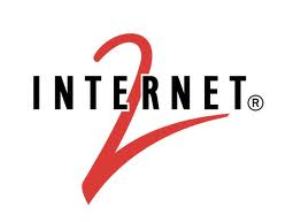 EDUCAUSE and Internet2 are implementing a series of etextbook pilots, the latest of which just launched for the fall 2012 term at more than two dozen U.S. universities.
EDUCAUSE and Internet2 are implementing a series of etextbook pilots, the latest of which just launched for the fall 2012 term at more than two dozen U.S. universities.
EDUCAUSE, a nonprofit that aims to advance higher ed through information technology, and Internet2, the massive not-for-profit advanced networking consortium, are conducting the pilot in partnership with McGraw Hill Education and digital textbook distributor Courseload.
It breaks with recent etext practice in three ways, replacing “individual purchases by students with site licenses negotiated and funded by campuses,” and “paper textbooks owned by students with electronic materials licensed for use in specific classes.” It also uses an ereader not associated with a specific publisher, Internet2 explains on its website.
Essentially, participating universities pay an all-inclusive fee for the Courseload ereader platform, the etextbook licenses and other publisher-provided content to Internet2, which then disburses funds to the different vendors.
One key goal is assessing how the institutional site license model supports lowering the cost of educational materials.
Affordability was top of mind for Monica Metz-Wiseman, coordinator of electronic collections at the University of South Florida Libraries (USF). “We know a lot of our students can’t afford textbooks,” she said, “and goals for the pilot include discovering whether the etextbook might be a more affordable solution for our students.”
Besides lowering costs, Vice President for Information Technology and Dean of University Libraries for Baylor University(BU). Pattie Orr, explained that the pilot offers the opportunity to explore whether etextbooks would work well as licensed materials for students, and to explore which technologies could delivering those materials in a way that supports teaching and learning most effectively.
(Orr will address this, among other topics in more detail during her keynote presentation at LJ’s upcoming Future of the Academic Library Symposium at Rice University on September 20.)
The delivery technology tested by the pilot is the Courseload ereader, integrated into a participating university’s Blackboard platform. It can be accessed on any device with a browser. Once a student accesses the text, it will be available offline as well, and any section can be printed out. The system will allow faculty and students to highlight passages, add annotations, and to share these annotations with other students in the class. Faculty, meanwhile, can also use the platform to share faculty-authored and other non-copyrighted digital content with their students.
“The capability of actually having, in a sense, ‘social study,’ is one of the major exciting things that people have been talking about,” said Greg Jackson, vice president of EDUCAUSE. “The overlaying of social media approaches onto electronic textbooks, and what that means, is something that clearly is happening already and clearly more lies in the future. And you really can’t do it, except electronically.”
Etextbooks also have the potential to be more dynamic resources than print books, Jackson added. “Right now, an author writes a textbook, and it’s printed, and there it is. Periodically, there’s a revised edition that comes out,” he said. “Now, you can imagine a textbook in a fast-moving field where the textbook itself actually changes to accommodate what’s happening.”
And, Metz-Wiseman noted, etextbooks can offer improved accessibility for vision-impaired students and others. “Ebooks are very helpful to a segment of our student population who struggles with print… I didn’t realize when I was doing this work [on etextbooks] that I was helping students with visual disabilities at the same time.”
The pilot series began with a successful test run at Indiana University last year, which, with the help of Internet2, then expanded into a limited experiment with the University of California at Berkeley, Cornell University, the University of Minnesota, the University of Virginia, and the University of Wisconsin at Madison this spring. In the spring pilot, students read more than 100,000 online pages and printed almost none.
Now, with over 25 universities participating, the program’s appeal to students and faculty, and its scalability are among the many issues that the fall pilot will examine and assess.
“In our pilot, we’ve tried to get a good representation—we have students from business, students from the sciences, students from the humanities—we’ve got a good variety of different classes,” Orr said. Some professors at Baylor have even set up control groups, in which they are teaching identical classes, one with a regular textbook and another with an etextbook, she added.
In addition to Baylor and USF, participants in the fall pilot include:
- California State Polytechnic University, Pomona
- Colorado State University
- Cornell University
- Dartmouth College
- Iowa State University of Science and Technology
- Madison Area Technical College
- Miami University of Ohio
- Michigan State University
- Middlebury College
- Northern Kentucky University
- Southern Illinois University, Edwardsville
- Stony Brook University
- University at Buffalo, The State University of New York
- University of Alaska
- University of California, Berkeley
- University of Colorado
- University of Hawaii
- University of Iowa
- University of Kentucky
- University of Virginia
- University of Wisconsin, Madison
- University of Wisconsin, Milwaukee
- Vermont State Colleges
- Virginia Polytechnic Institute and State University
- Wichita State University


